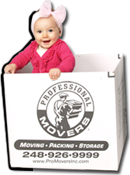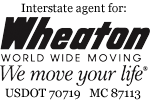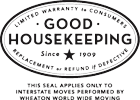“There are certain experiences—childbirth is one; moving is another—that nature and time definitely draw a curtain on, so you forget in between times how painful they are.” Katherine Graham, famed publisher of the Washington Post, wrote this famous quote in her Pulitzer Prize-winning memoir, Personal History. Most people believe that the joy of having children makes the pain of childbirth worthwhile, just as most seniors who relocate are happy with the outcome as well. Moving allows these seniors to enjoy a new life that often includes better opportunities for socialization, stimulation, improved nutrition and exercise—all important aspects of thriving as we age. But let’s not sugarcoat the truth: moving is tough for everyone, but it is toughest for elderly adults and their families.
What is relocation stress syndrome?
Over the past two decades, increasing attention has been paid to relocation stress syndrome (RSS), which is also known as transfer trauma. RSS is a formal nursing diagnosis characterized by a combination of physiological and psychological disturbances that occur as a result of transferring a person from one environment to another. Symptoms of relocation stress syndrome include exhaustion, sleep disturbances, anxiety, grief and loss, depression and disorientation. In seniors, these symptoms are exacerbated by dementia, mild cognitive impairment, poor physical health, frailty, lack of a support system, and sensory impairment. For these seniors in particular, the resulting confusion, depression and agitation have led to increased falls, undesirable weight loss and self-care deficits.
Although initial studies on RSS focused on outcomes of individuals moved to nursing homes and assisted living facilities without their involvement or consent, it is now generally understood that RSS can affect those who have chosen to move, been involuntarily relocated, or been placed in a care facility for mental or medical needs.
What You Can Do to Help Offset Relocation Stress Syndrome
Studies have shown that certain actions are successful in minimizing RSS. These actions, which can be undertaken by family members, are all hallmarks of Professional Movers.com They include:
- Involving the senior in the decision and planning process.
- Providing the senior an opportunity to ask questions & discuss concerns.
- Honoring the senior’s preferences and allowing them to maintain control.
- Special focus on details & maintaining daily routine as much as possible.
- Safeguarding the senior’s personal possessions.
- Involving the senior in setting up the new room or apartment.
- Making the new home resemble (as much as possible) the old home.
- Helping the senior become acclimated with their new surroundings.
It is not surprising that seniors do better after a move when they are involved in the decision, have an opportunity to voice their concerns and be heard, and are able to maintain a sense of control. Anyone, regardless of age, would do better under these circumstances. The problem is: seniors often don’t get this opportunity. Well-meaning family members may make decisions on their elderly loved ones’ behalf, not soliciting or listening to their concerns, or simply need to move the seniors faster than they can handle. In short, family members often focus on the details of the move rather than on the person who is moving.
How Can Professional Movers.com Help?
Few things speak as urgently about the benefit of using a Certified Senior Moving Consultant when relocating an elderly adult. Let our Certified Senior Moving Consultant handle the move; we will involve the individual and honor any preferences (it’s what we do best). This allows family members to focus on what they do best: attending to the needs of the person in transition, maintaining his or her routines and helping the senior become acclimated to the new environment. Nothing can entirely remove the pain of relocation, but this team approach helps everyone focus on what is truly important, your loved ones.
If you are still unsure but would like to begin exploring the possibility of working with Professional Movers.com on your next senior relocation, contact us at 248-926-9999. One of our Certified Senior Moving Consultants would be happy to discuss your options and answer any of your questions.









 We make picking the right packing materials simple. View our wide variety of
We make picking the right packing materials simple. View our wide variety of 









